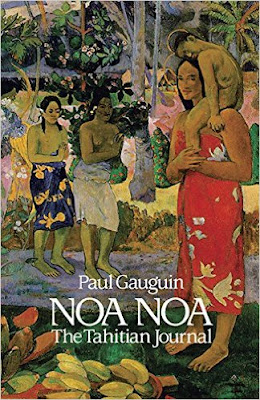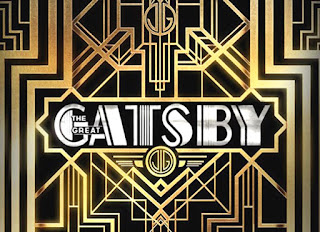Shakespeare & the World in Conflict
 A little while ago, I saw a documentary about Shakespeare's mother, which talked about all of the social and political changes that occurred in the lifetime of Shakespeare and his mother. Although I know quite a bit about the history of England, it never really occurred to me that Shakespeare lived through the dynastic shift between the Tudors and the Stuarts and was born shortly after Elizabeth I established Protestantism as the official religion of England.
A little while ago, I saw a documentary about Shakespeare's mother, which talked about all of the social and political changes that occurred in the lifetime of Shakespeare and his mother. Although I know quite a bit about the history of England, it never really occurred to me that Shakespeare lived through the dynastic shift between the Tudors and the Stuarts and was born shortly after Elizabeth I established Protestantism as the official religion of England.Although England's official religion would remain constant for the rest of Shakespeare's life, in the lifetime of his mother England's religion changed three times. These important shifts would certainly form an important backdrop in Shakespeare's life, particularly in a world in which religion determined how everyone saw the world and their place in it. In fact, there is some speculation that Shakespeare and his family remained Catholic even after the Protestant Reformation, further muddying the waters. What is clear is that Shakespeare lived in a time of incredible tumult in which everyone was forced to reexamine the world, their place in it, and all truths they had taken for granted. Needless to say, I think this had a profound effect on his plays.
It seems to me that you could read any one of Shakespeare's plays as a reflection of a world in conflict. His works are full of toppled kings, topsy-tervy islands, and mysterious forays into the Green World. Perhaps this is nothing earth shattering, but, obviously, these tropes come from somewhere -- these are the sorts of things that were on Shakespeare's mind at the time. I think a particularly good example of this is Henry IV, Part 1.
As anyone who knows me knows, I adore the Henriad and I will talk about it whenever you let me. To me, what is most interesting about the play is the dichotomy of the two Henrys -- Henry Plantagenet (the future Henry V) and Henry Percy (the rebellious young nobleman who challenges the monarchy). While they are both real, historical figures, the actually Henry Percy (AKA Hotspur) was much older than Henry Plantagenet (Prince Hal in this play). Shakespeare alters the narrative to make them exact contemporaries -- alike in age and social position. However, for Shakespeare these two young men represent diametrically opposed world views -- paradigms in conflict.
 |
| Hotspur, played by Joe Armstrong, in The Hollow Crown version of Henry IV, part 1 |
While modern critics often cast Hotspur as an intemperate, somewhat comic character who bubbles with choler, I think it's far more likely that he would have been understood as a tragic hero by a contemporary, Shakespearean audience. In the final scenes of the play, Hotspur bravely fights leads his troops into battle against Prince Hal and his father against overwhelming odds. Hotspur, it appears, is doomed from the start, but he refuses to accept defeat and persists valiantly until the end. Prince Hal, Hotspur's killer and adversary honors and respects him in death, acknowledging his heroism and worthiness:
For worms, brave Percy: fare thee well, great heart!
Ill-weaved ambition, how much art thou shrunk!
When that this body did contain a spirit,
A kingdom for it was too small a bound;
But now two paces of the vilest earth
Is room enough: this earth that bears thee dead
Bears not alive so stout a gentleman.
If thou wert sensible of courtesy,
I should not make so dear a show of zeal:
But let my favours hide thy mangled face;
And, even in thy behalf, I'll thank myself
For doing these fair rites of tenderness.
Adieu, and take thy praise with thee to heaven!
Thy ignominy sleep with thee in the grave,
But not remember'd in thy epitaph!
Shakespeare, 5.4
Hotspur, in terms of Shakespeare's worldview represents the old world that is fading away. The romantic, chivalric past is inexorably linked to English Catholicism and the world it engendered. The play implies that Hotspur dies because he fails to understand the political realities of his time. He is brave, but outmoded. He represents a straight forward time in which every person had a place and a role to play. Hotspur understands his role to be that of the warrior, however, this ignores the shift that is occurring in the world of the play.
 |
| Tom Hiddleston as Henry V/Prince Hal |
Prince Hal, who ultimately slays Hotspur, is also an incomparable warrior, but he is also a statesman, a politician, and a courtier. Whereas Hotspur is straightforward and direct, Prince Hal conceals his true motives and desires. He represents the shift to the Renaissance; he is modern, politically savvy, and shrewd. Chivalry and honor suit Hal when he has use for them but are not a permanent part of his character. Hal understands that prowess on the battlefield is no longer enough to hold on to the throne; the king must now be a man of many faces who fills political and social roles. In perhaps his most famous speech of the play, Hal reveals that his personality is more or less a rouse, outlining his duplicitous actions and political ambitions.
Yet herein will I imitate the sun,
Who doth permit the base contagious clouds
To smother up his beauty from the world,
That, when he please again to be himself,
Being wanted, he may be more wonder'd at...
So, when this loose behavior I throw off
And pay the debt I never promised,
By how much better than my word I am,
By so much shall I falsify men's hopes;
And like bright metal on a sullen ground,
My reformation, glittering o'er my fault,
Shall show more goodly and attract more eyes
Than that which hath no foil to set it off.
I'll so offend, to make offence a skill;
Redeeming time when men think least I will.
Shakespeare, 1.2
Thus, the battle between Hotspur and Hal is the battle of past and future for Shakespeare -- a very real religious and political conflict that had real ramifications for his own life. This moment of social and cultural transition in the history of England is represented by Shakespeare as a bloody struggle. The play communicates that paradigm shift is never smooth, it is a battle.
Just readin'
Shakespeare, 1.2
This conception of kingship would have seemed more modern in Shakespeare's time. By the time of Shakespeare's birth, the legend of Henry VII picking up his crown from the mud of Bosworth field would have seemed ancient and otherworldly. Elizabeth I and James I were far more in keeping with Shakespeare's Prince Hal than Hotspur.
Thus, the battle between Hotspur and Hal is the battle of past and future for Shakespeare -- a very real religious and political conflict that had real ramifications for his own life. This moment of social and cultural transition in the history of England is represented by Shakespeare as a bloody struggle. The play communicates that paradigm shift is never smooth, it is a battle.
Just readin'



Comments
Post a Comment